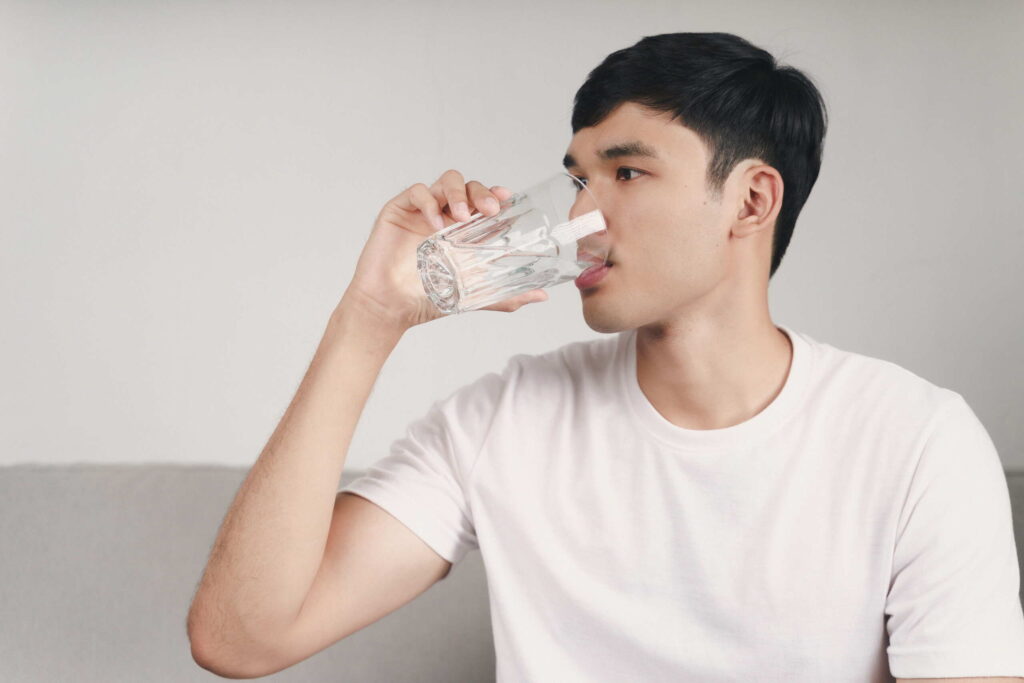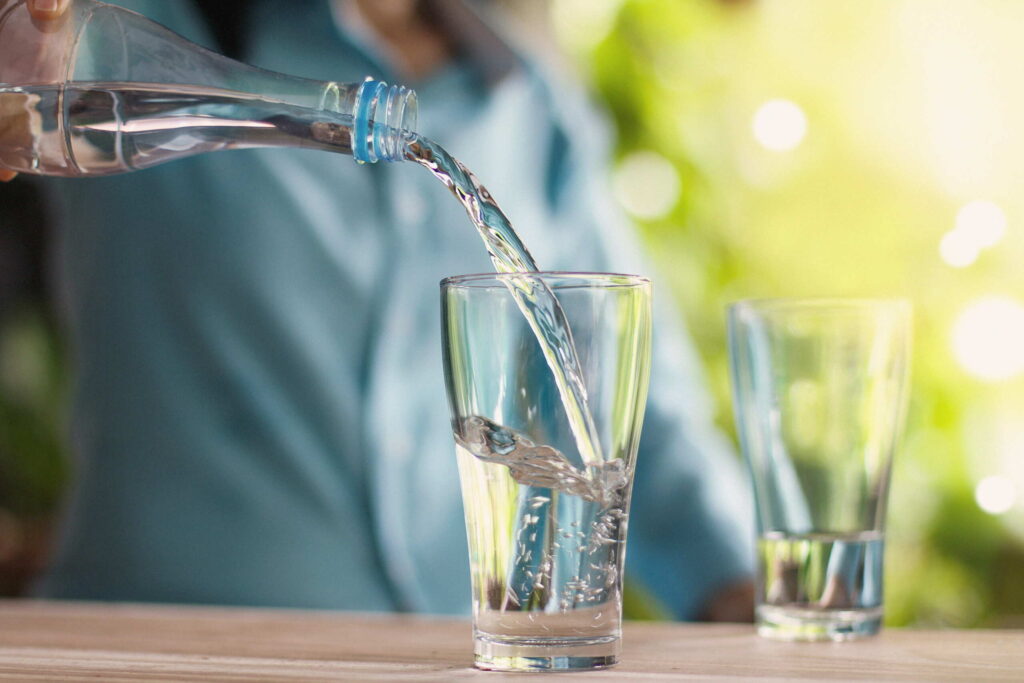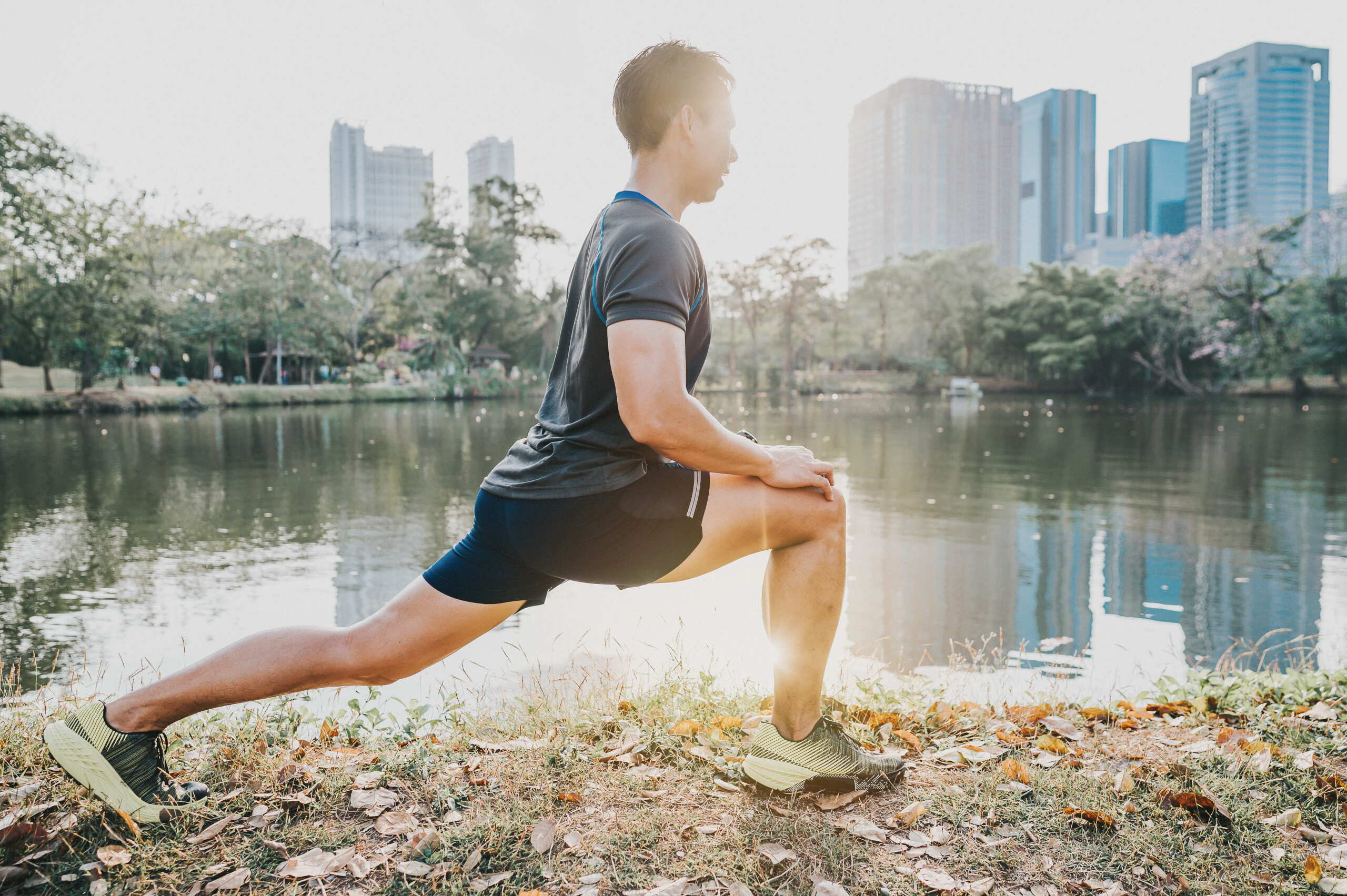Sufficient hydration is crucial for maintaining good health and wellness, especially during physical activity. Whether you’re a dedicated athlete or enjoy occasional exercise, it’s essential to understand the importance of staying hydrated during physical activity.
This article will explore why staying hydrated during exercise is necessary and provide practical advice to help you maintain optimal hydration levels.
The Role of Water in Exercise
Water is the body’s primary means of temperature regulation during physical activity. As you work out, your body generates heat, causing sweat. Sweat is the body’s natural cooling mechanism, leading to fluid loss.
Here’s why water is crucial for exercise:
- Thermoregulation: Sweating helps dissipate heat and maintain a stable core body temperature. Without adequate hydration, your body may struggle to cool down efficiently, increasing the risk of heat-related illnesses like heat exhaustion or heatstroke.
- Performance Enhancement: Dehydration can lead to a decrease in physical and mental performance. You may feel fatigued, experience muscle cramps, and have reduced endurance, making it harder to achieve your exercise goals.

Signs of Dehydration During Exercise
Recognizing the signs of dehydration during physical activity is essential for your safety and performance. Some common indicators of dehydration include:
- Thirst: Feeling thirsty is an obvious sign that your body needs water. However, more than relying solely on thirst as a hydration cue may be required, as thirst may not accurately reflect your level of dehydration.
- Dark Urine: Dark yellow urine indicates you do not drink enough fluids. Ideally, your urine should be pale yellow, indicating proper hydration.
- Dry Mouth and Skin: Dry mouth, dry or sticky-feeling skin, and cracked lips are physical signs of dehydration that may become more noticeable during exercise.
- Fatigue and Dizziness: Dehydration can lead to feelings of fatigue, dizziness, or lightheadedness, which can impair your ability to exercise safely and effectively.
How Much to Drink During Exercise
The amount of fluid you should consume during exercise depends on various factors, including the duration and intensity of your activity, environmental conditions, and your sweat rate.
However, as a general guideline:
- Pre-Hydration: Start your exercise session well-hydrated by drinking approximately 16-24 oz (about 500-700 ml) of water or a sports drink 2 hours before your workout.
- During Exercise: Aim to drink about 6-12 oz (about 170-350 ml) of fluid every 10-20 minutes. If your activity lasts longer than an hour or involves intense sweating, consider a sports drink that contains electrolytes to replace lost minerals.
- Post-Exercise: After your workout, rehydrate by drinking water or a recovery beverage. You can weigh yourself before and after exercise to estimate your fluid loss and replenish it accordingly.

Hydration Strategies for Different Activities
Hydration needs can vary depending on the type of physical activity you engage in:
- Cardiovascular Exercise: Running, cycling, or aerobics often leads to substantial fluid loss due to increased sweat rates. Consistent sipping of fluids during these activities is crucial.
- Strength Training: While you may not sweat as much during strength training, hydrating before and after your workout is essential to support muscle function and recovery.
- Outdoor Activities: When exercising in hot or humid conditions, you must increase fluid intake to compensate for higher sweat rates. Pay attention to your body’s cues and take breaks to rehydrate.
Practical Hydration Tips
To ensure you stay adequately hydrated during physical activity, consider the following practical tips:
- Plan: Hydrate well before you start your exercise. Make it a habit to drink water throughout the day to begin your activity already well-hydrated.
- Bring a Water Bottle: Carry a reusable water bottle with you during exercise to make it convenient to take sips as needed.
- Consider Electrolytes: For more prolonged or intense workouts, especially in hot conditions, consider sports drinks or electrolyte supplements to replace lost minerals.
- Monitor Your Sweat: Pay attention to your sweat rate and adjust your hydration strategy accordingly. Weighing yourself before and after exercise can help you estimate fluid loss.
In conclusion, staying hydrated through physical activity is essential to perform optimally, maintain safety, and promote overall well-being. Dehydration can impede your ability to enjoy exercise and achieve your fitness objectives, so it’s imperative to remain aware of your hydration requirements.
By being aware of dehydration symptoms, knowing how much water to consume, customizing your hydration approach based on your activity level, and following practical tips, you can ensure that you remain hydrated while remaining active and healthy.
References
Disclaimer
- It is intended for general informational purposes only: The information provided on BioKissed’s website and app, including but not limited to business opportunities, nutrition tips, healthy lifestyle tips, healthy lifestyle practice articles, nourishing recipes, and wellness articles (hereinafter collectively referred to as “Content”), is intended for general informational purposes only. The Content is not intended to be a substitute for professional business advice, medical advice, diagnosis, or treatment.
- It is solely at your own risk: BioKissed does not recommend or endorse any specific tests, physicians, products, procedures, opinions, or other information that may be mentioned on the website or app. Reliance on any information provided by BioKissed, its employees, contracted writers, or others appearing on the website or app at the invitation of BioKissed is solely at your own risk.
- BioKissed does not endorse or approve any views in the Content: BioKissed does not guarantee the accuracy, completeness, or usefulness of any Content, nor does it endorse any views expressed within the Content. The inclusion of any Content on BioKissed’s website or app does not imply endorsement or approval of such Content.
- You voluntarily assume all such risks: Before participating in any challenge, making significant lifestyle modifications, altering your dietary practices, or engaging in any related activities, it is advisable to assess your personal health and fitness levels. BioKissed expressly disclaims responsibility for the substances individuals choose to consume, and the company is not liable for any consequences, including those related to food allergies, resulting from such choices. By choosing to participate in any challenge, you acknowledge and agree that any such activities carry inherent risks, and you voluntarily assume all such risks, even if they arise from the negligence of BioKissed, its affiliates, or its members.
- BioKissed and its content providers disclaim any responsibility or liability for consequences: BioKissed and its content providers assume no responsibility or liability for any consequence relating directly or indirectly to any action or inaction you take based on the information found on or through BioKissed’s website or app.
- Read more
